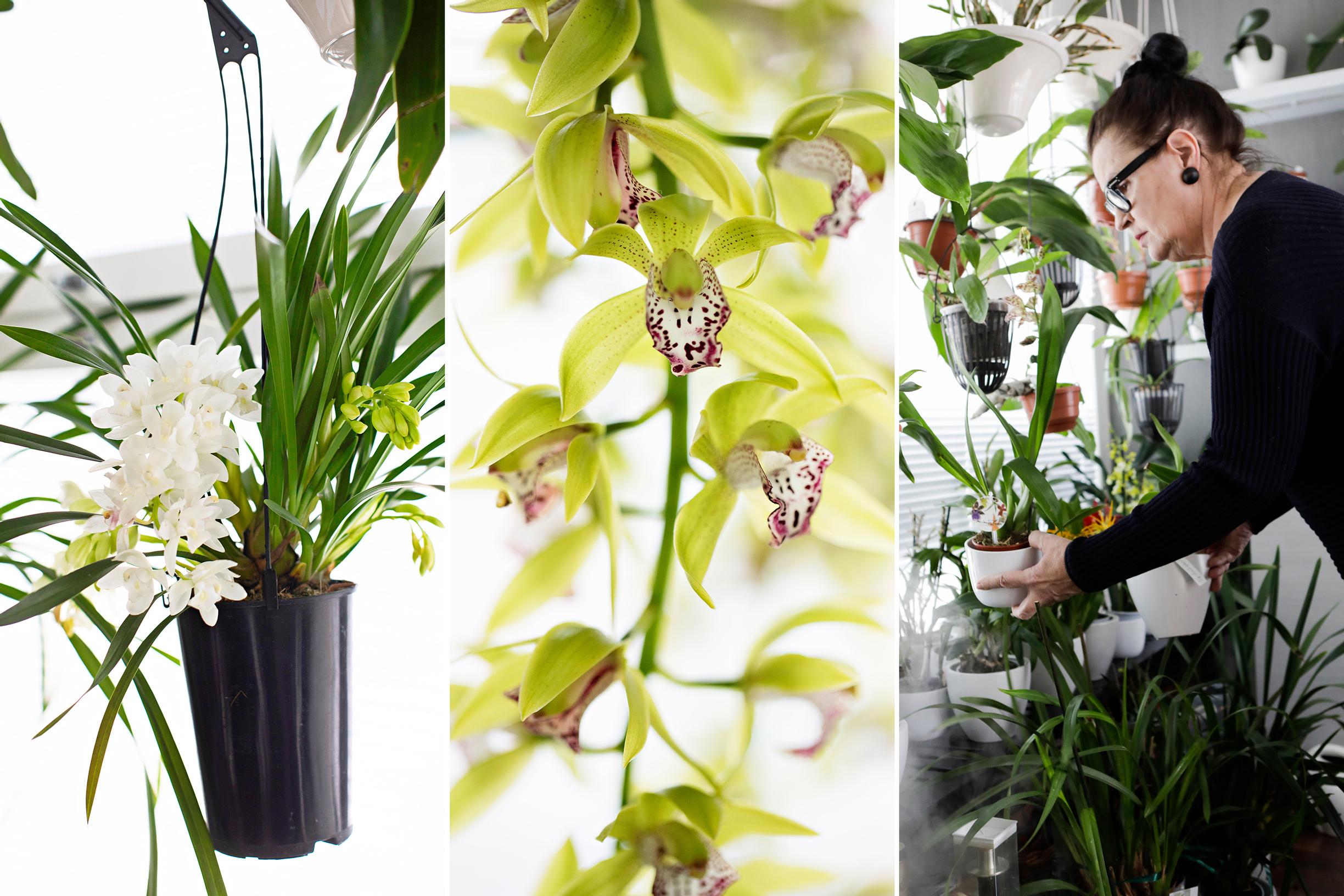
Orchids enchanted Sinikka, and now she has over a hundred in her home—here’s how she helps her temperamental favorites thrive!
A heavenly fragrance drifts from Sinikka Pollari’s plant room. There, more than a hundred orchids grow, and each one surprises her upon blooming.
The scent in this place makes you feel like you're in a flower shop! Orchid enthusiast Sinikka Pollari’s apartment is full of tropical aromas.
This effect comes from a wealth of vibrantly blooming orchids. Some have elongated blossoms, some have rounded petals, some form large clusters, and others produce single blooms.
Right now, the most captivating are the vanilla-scented dendrobium, the black-peppery spider orchid, and several strongly fragrant Oncidium varieties. They are all morning types which means their aroma is most potent late in the morning.
“For orchids, it’s common that they only release their scent for a few hours a day—some in the morning, others in the afternoon or evening,” Sinikka explains.

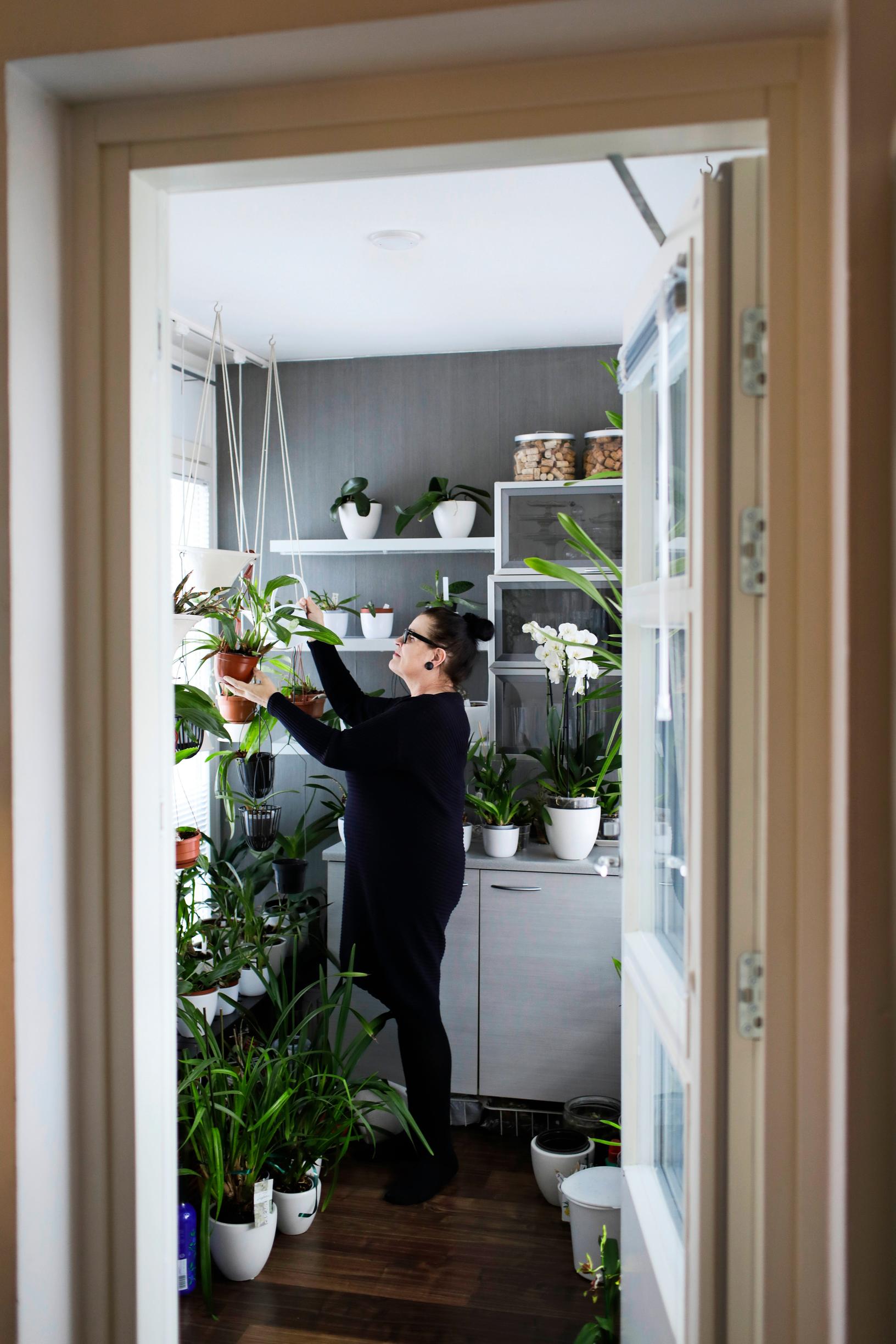

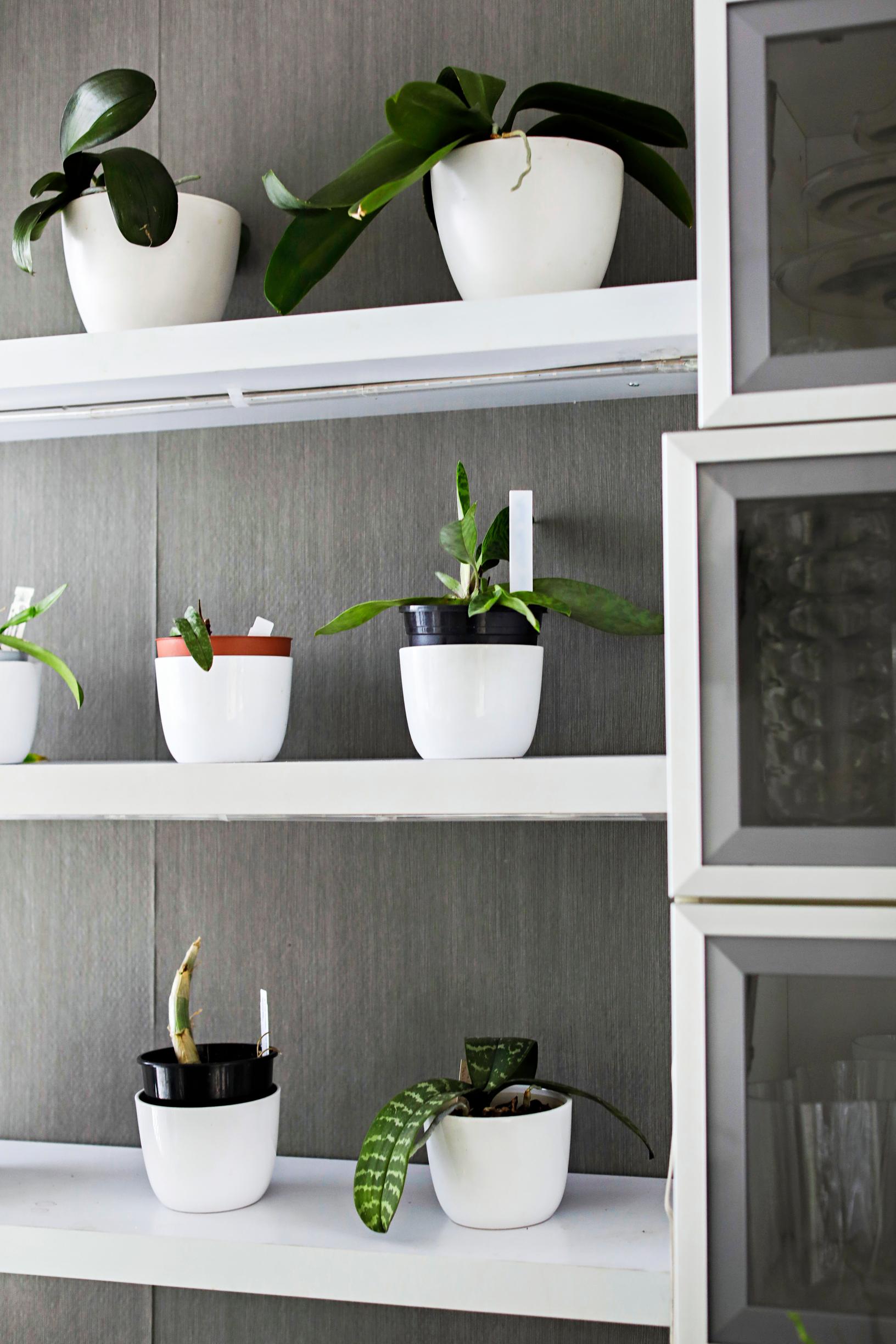

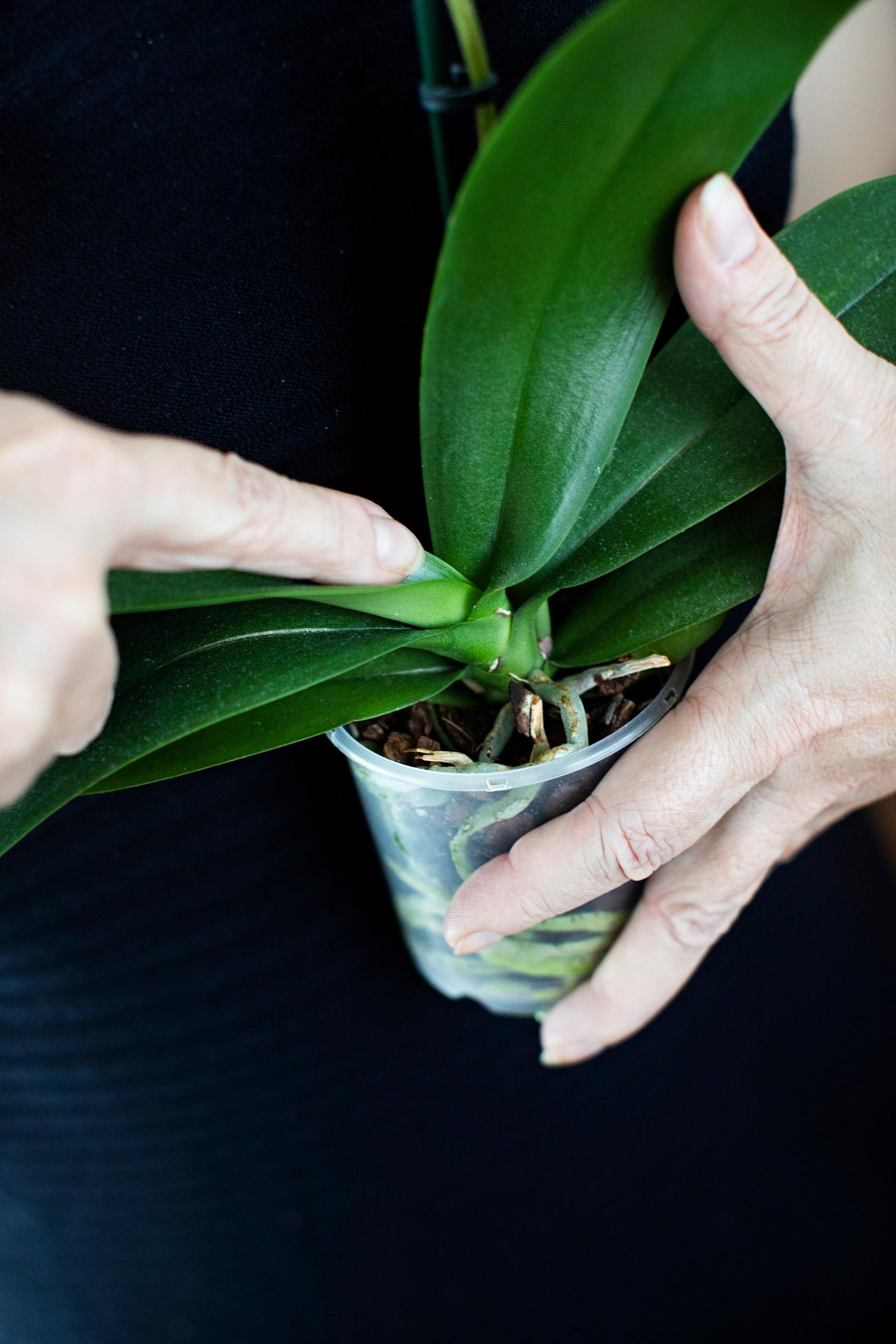
She speaks from experience. Her orchid collection has well over a hundred plants from 40–50 different orchid species. At least one of them is always in bloom.
It all started with a moth orchid she got as a gift from a friend about twenty years ago. Sinikka managed to keep alive and rebloom the orchid despite expecting difficulties.
“I thought, ‘I’ve got this figured out,’” she says with a laugh.
She added more moth orchids and then tried dendrobium. Her enthusiasm soared after she moved from Kajaani to Helsinki in the summer of 2011.
She bought an apartment with a six-square-meter plant room. Two of its walls are windows. Soon after she moved in, it began filling with increasingly unusual orchids.

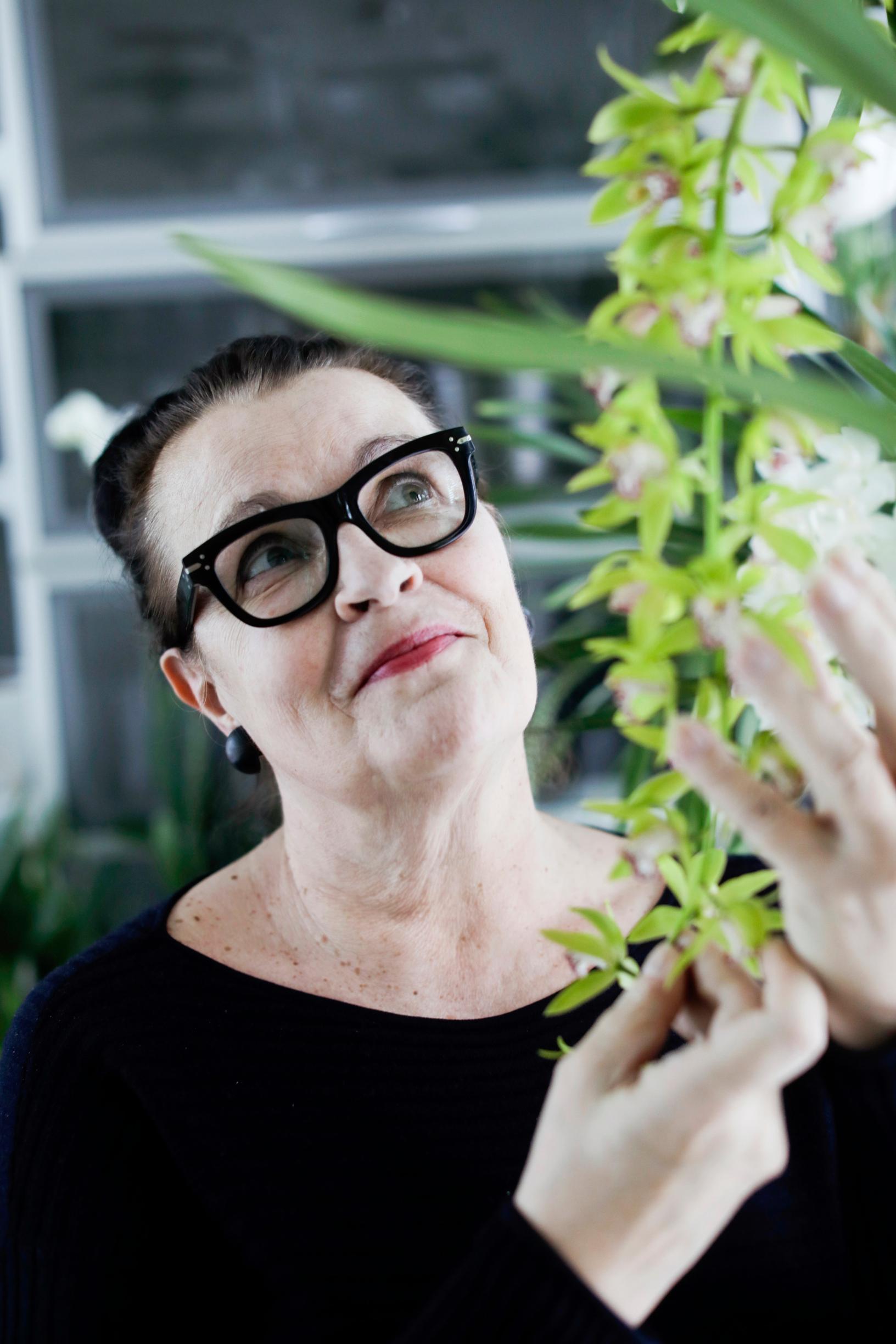

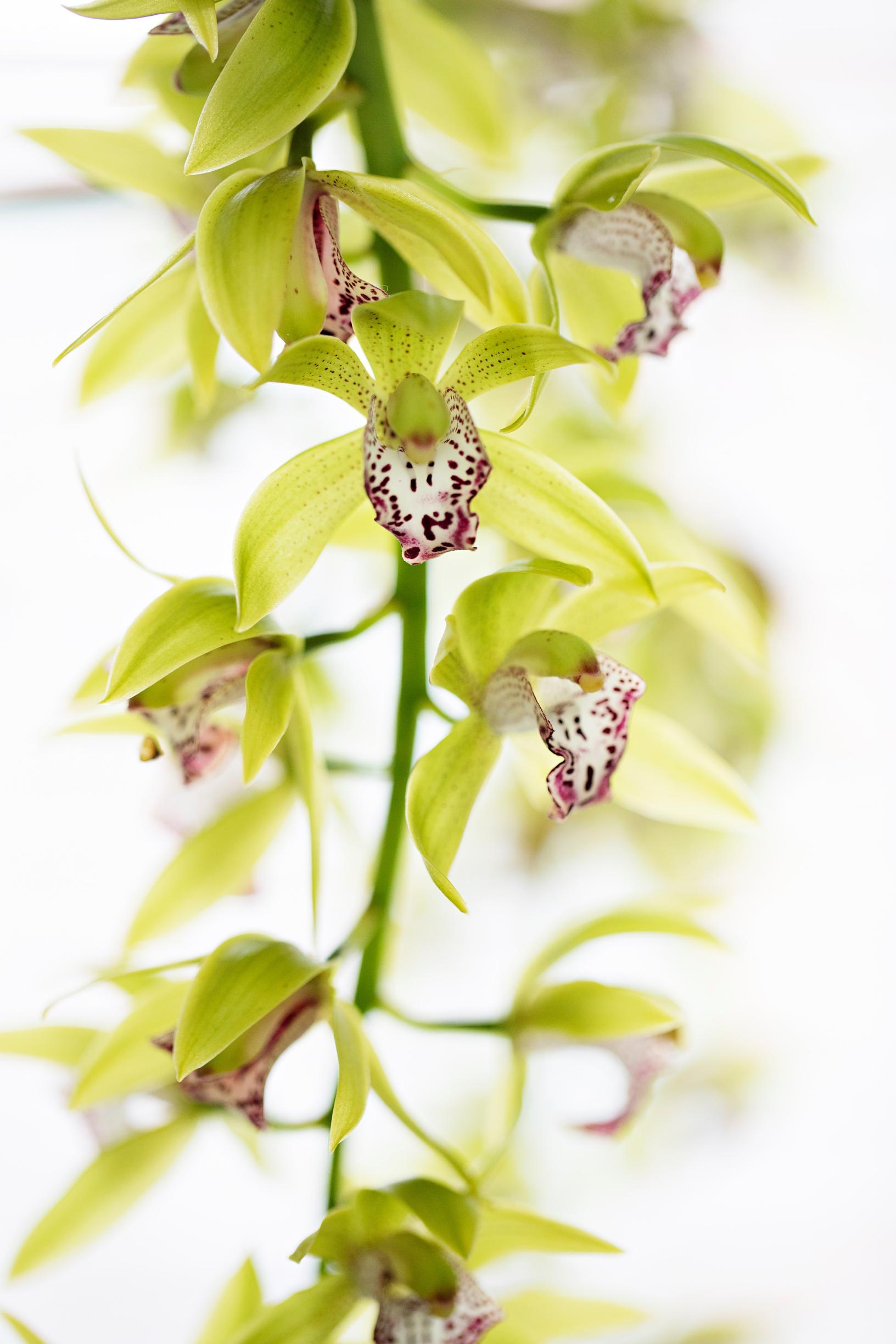

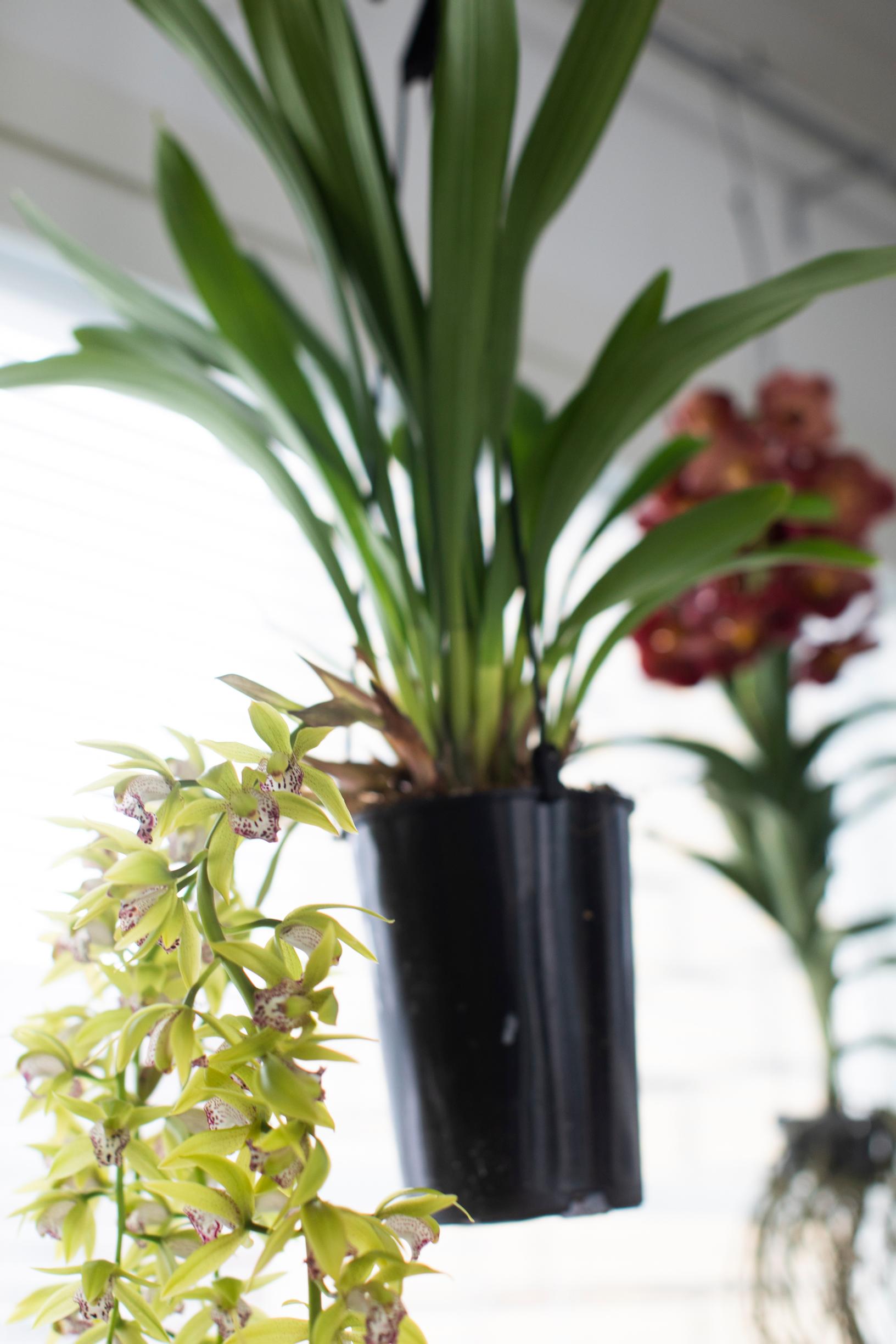

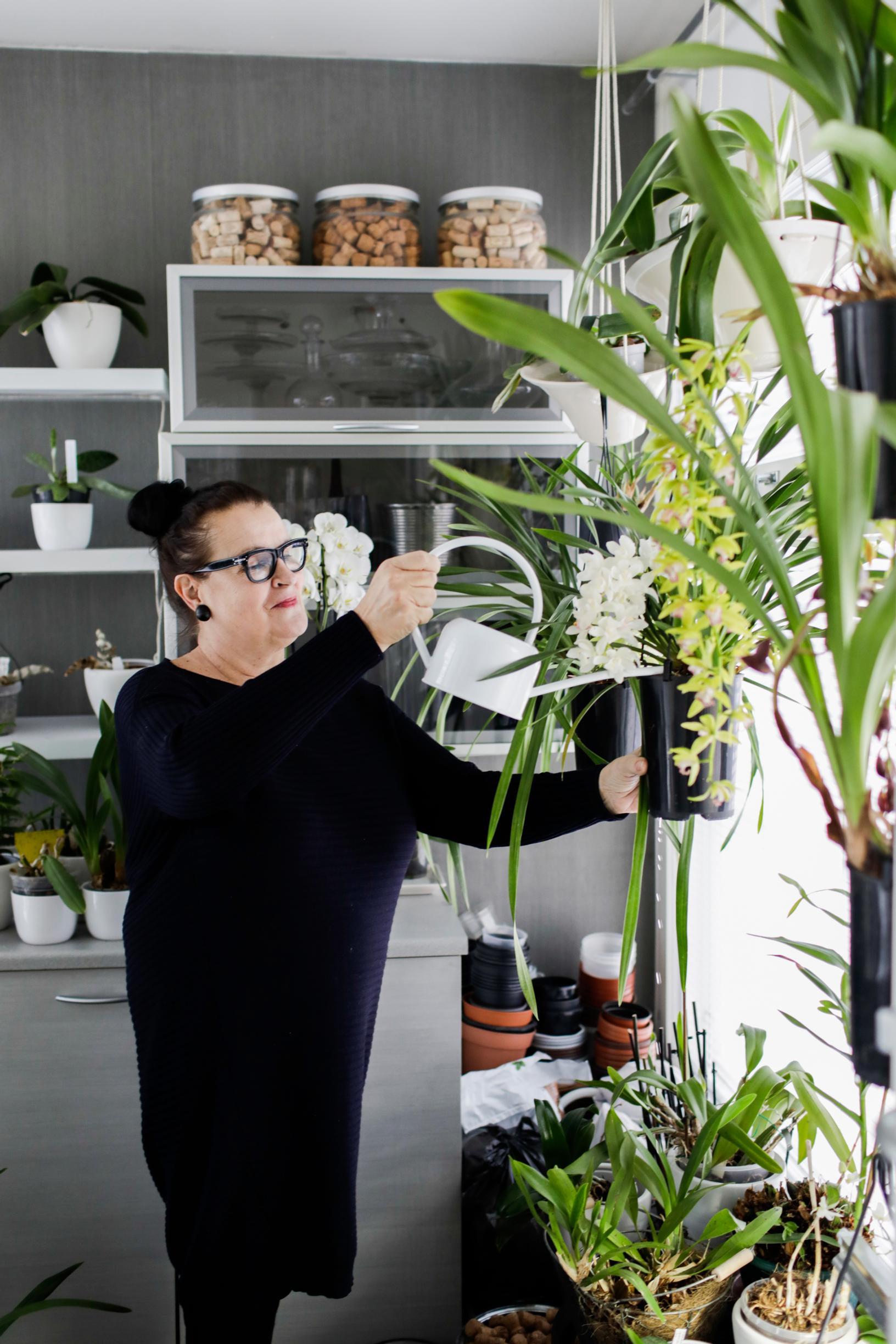
Different orchid varieties each demand their own kind of care, something Sinikka finds both demanding and fascinating.
Before she buys a new species, she looks up its care tips and reads other enthusiasts’ experiences. She picks species she thinks will flourish in her plant room. Sun orchids and aerial-rooted vandas do especially well. If she’s doubtful, she won’t purchase the plant.
”The flowers smelled like a horse stable.”
Once, she made an exception. She wanted to see if she could get the notoriously fussy Aerangis biloba to bloom. And she succeeded. The white flowers, with a faint pink hue at the petal tips, looked stunning—but came with a surprise.
“The flowers smelled like a horse stable. It was winter, and I couldn’t even take it outside to air out,” Sinikka recalls.
A couple of years ago, new windows were installed in Sinikka’s building. Her orchids didn’t like it. Around twenty plants died, and many more wilted. They had thrived in a slight draft and couldn’t adapt to airtight windows.
Part of the damage also came from the few weeks they spent elsewhere in the apartment during renovation.

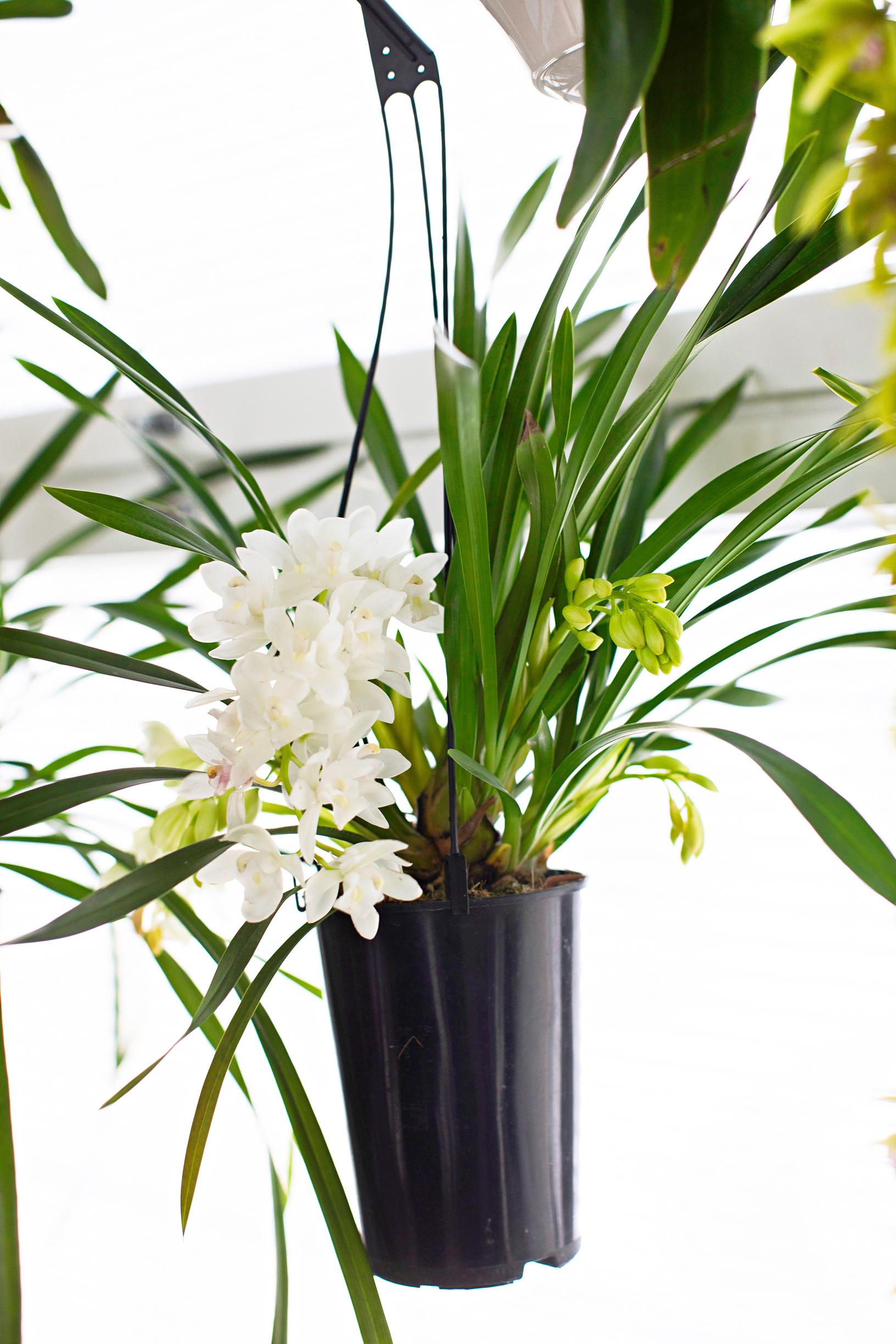
“They do best in their usual spots. I rarely move them from one window to another in the plant room. Even a slight change can harm the plant.”
Sinikka’s favorites, and the ones she finds most fascinating, are the Cycnoches orchids. In winter, they drop their leaves, leaving only a bare bulb that holds the plant’s nutrients. When spring arrives, the bulb grows new shoots and ultimately produces eye-catching blooms that last for weeks.
“I love how such a plain bulb can turn into such a gorgeous flower. It really bursts into bloom.”
The first signs of blooming always catch her off guard.
“It feels like a victory when I’m watering them and notice that buds have formed.”

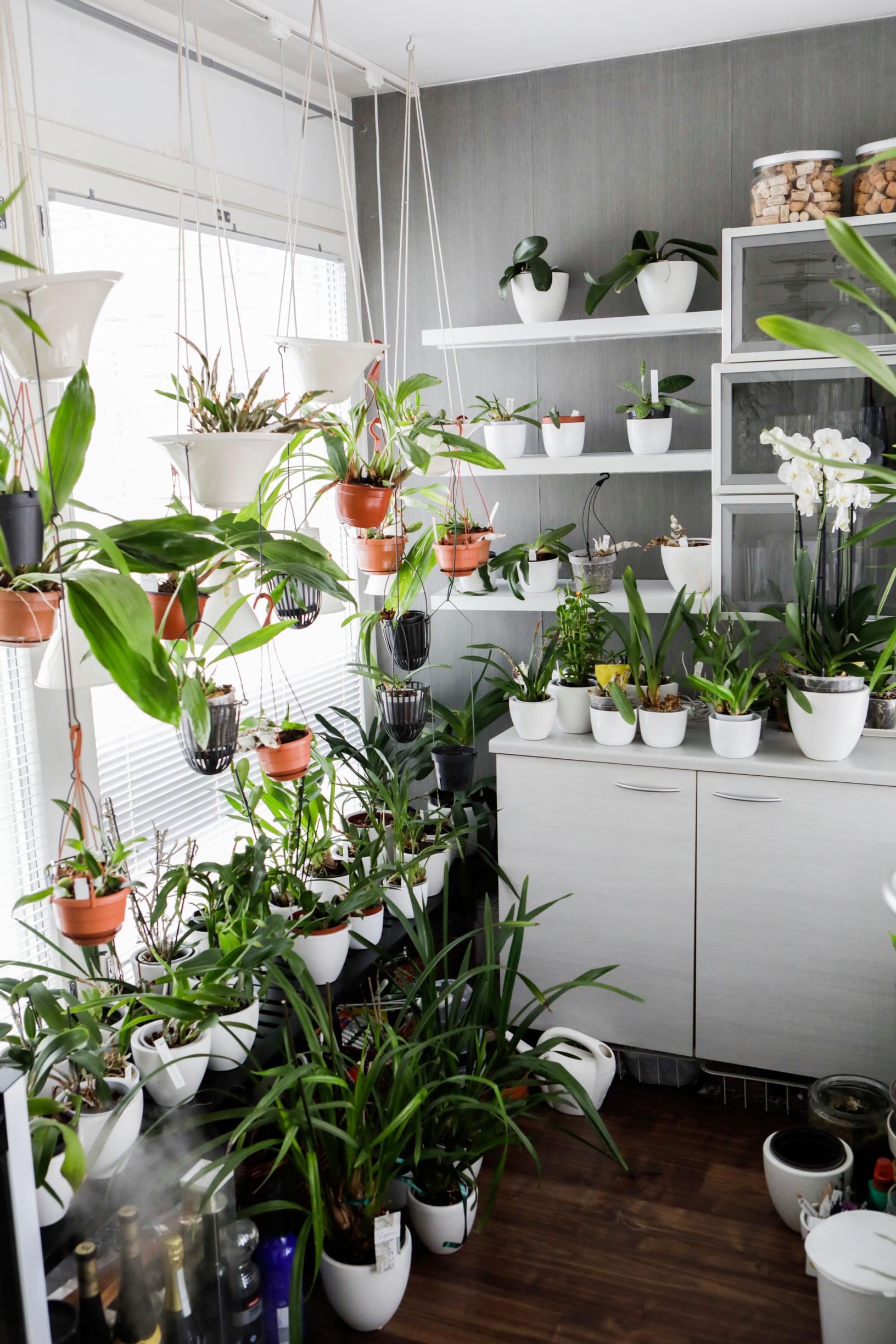

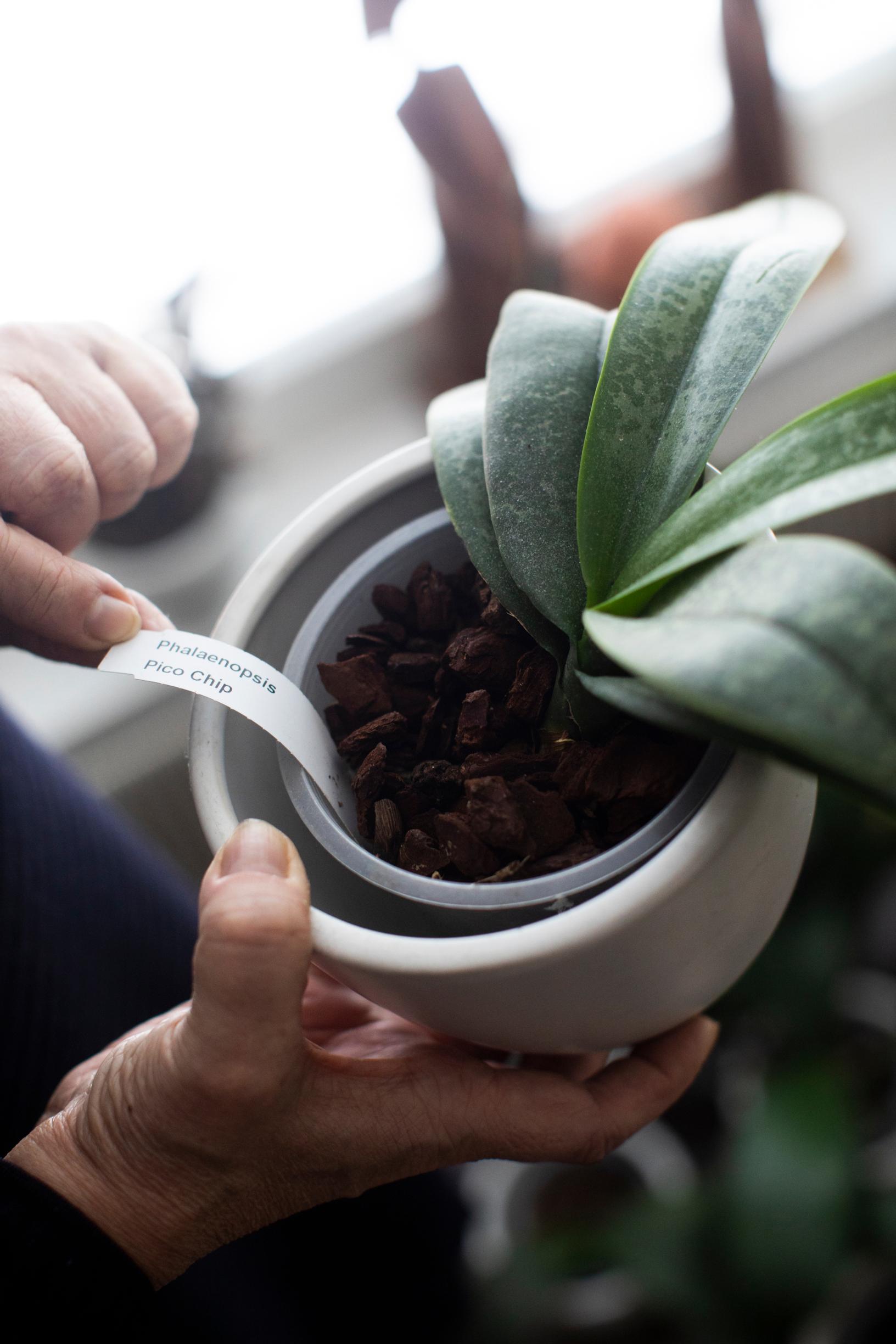

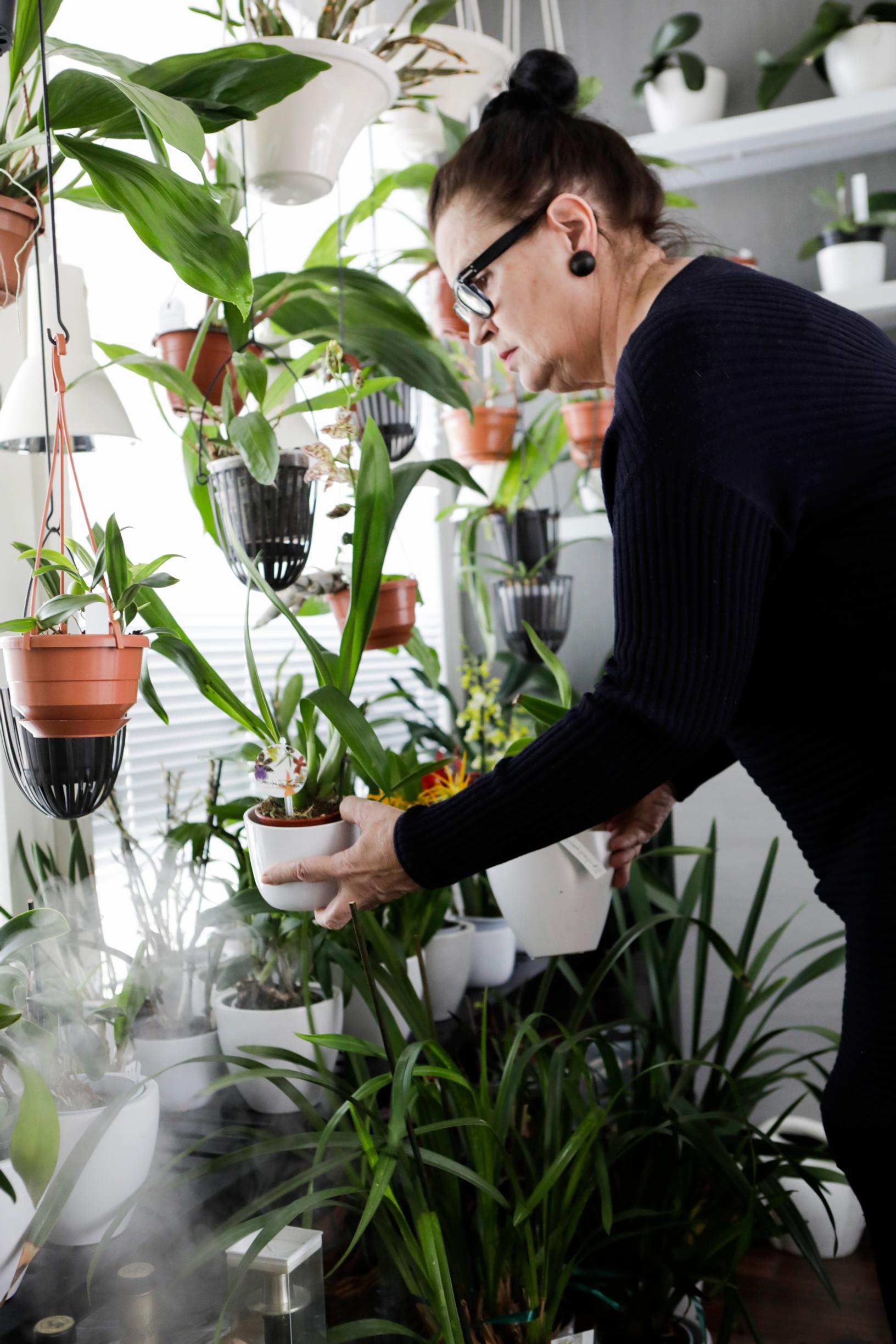
Sinikka’s tips: here’s how to help orchids flourish!
1. Keep moisture consistent
Some species are watered by soaking them, while others can be watered at the base. Don’t let water collect around the roots or at the growth point. Most do well with watering once a week in summer, every other week in winter. Some rest through winter completely dry. If indoor air is dry, use a humidifier.
2. Give them light and temperature variety
Most orchids like light but not direct scorching sun. Cattleyas and variegated-leaf varieties need more light than other types. Many also enjoy a difference between daytime and nighttime temperatures.
3. Use fertilizer properly
Begin using orchid fertilizer at the start of the growth period, and pause during flowering and rest. You’ll recognize overfertilizing if you see plant damage.
4. Change the growing medium
Orchids need a fresh medium every few years. Most thrive in a mix of bark, moss, charcoal, and perlite, instead of regular potting soil. It’s easy to blend yourself.
5. Keep pests in check
Check weekly for mealybugs or mites. If you spot any, remove them, isolate the plant, and wipe the leaves with a cotton swab dipped in Neo-Amisept. Keep new plants away from the others for a few weeks. If an infestation breaks out, a few ladybugs can help.




